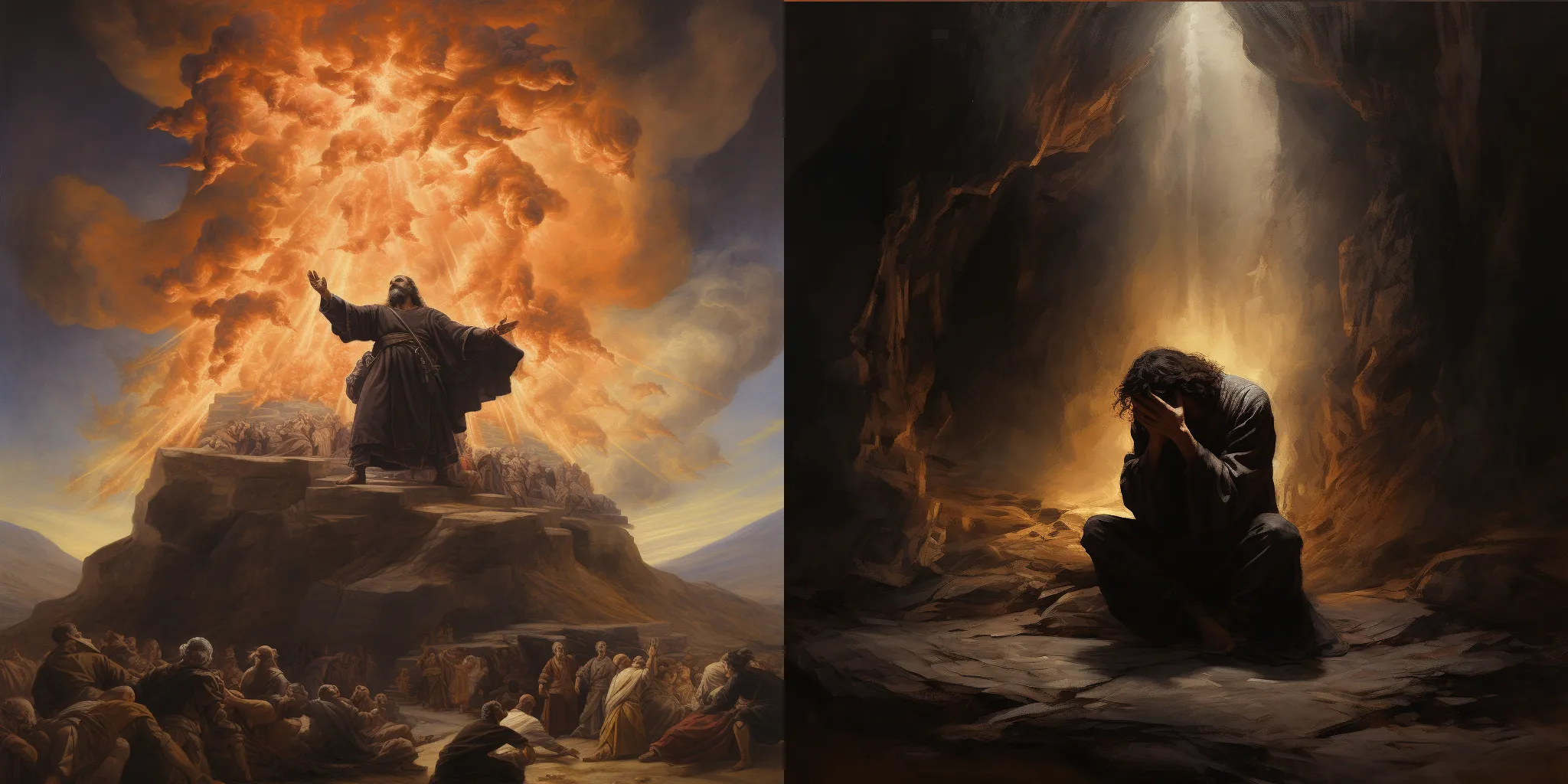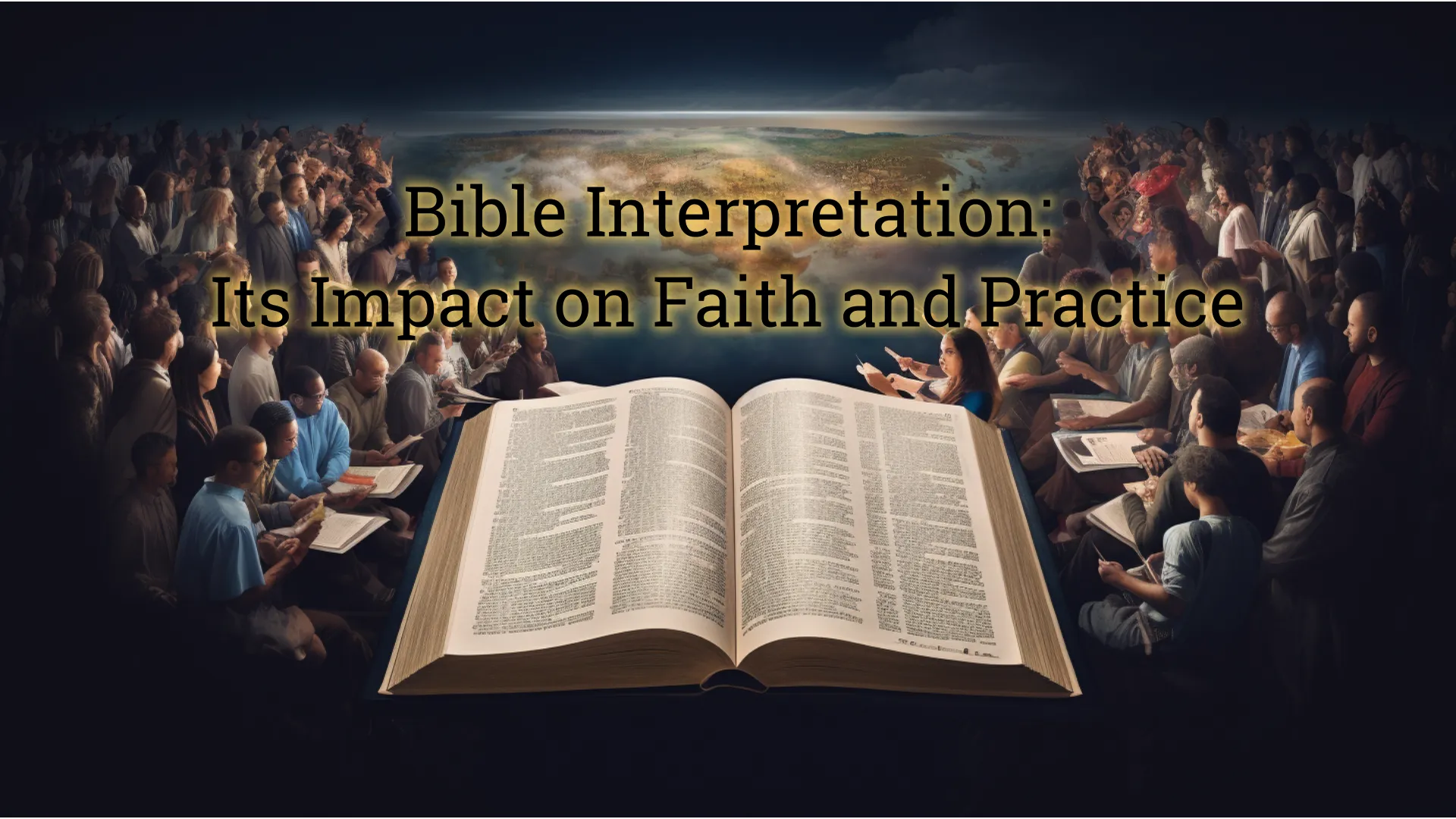The Mission of Matthew 10: Evangelism and Discipleship
Uncover the empowering mission outlined in Matthew 10, where Jesus commissions His disciples to spread the message of hope and salvation through evangelism. Embrace the significance of sharing the Good News with courage and conviction.
The kingdom of heaven was coming too soon and the number who needed to be prepared was too large for the Jesus’ message to be proclaimed by just one person. So, in Matthew 10, we find Jesus appointed twelve of his disciples to be apostles, a word that means “sent one”, “envoy” or “messenger”. Let’s look at who he choose, then we will examine the mission Jesus gave them and how he prepared them for that mission.
Matthew 10:1–4 NKJV
And when He had called His twelve disciples to Him, He gave them power over unclean spirits, to cast them out, and to heal all kinds of sickness and all kinds of disease. Now the names of the twelve apostles are these: first, Simon, who is called Peter, and Andrew his brother; James the son of Zebedee, and John his brother; Philip and Bartholomew; Thomas and Matthew the tax collector; James the son of Alphaeus, and Lebbaeus, whose surname was Thaddaeus; Simon the Cananite, and Judas Iscariot, who also betrayed Him.
The Men
- Peter and Andrew, the brothers and fishermen Jesus had called in Matthew 4:18ff. Jesus had also healed Peter’s mother-in-law in Matthew 8:14ff.
- James and John, another pair of brothers and fishermen called in Matthew 4. Jesus gave them the nickname, “Sons of Thunder” (Mark 3:17)
- Matthew, is the author of this record of Jesus’ life, a former tax collector who was called by Jesus in the previous chapter. He is also called Levi.
The others we have not met yet in this gospel, and we know very little more about them, even from the rest of the New Testament writings.
- Philip, Peter and Andrew were all from Bethsaida (John 1:43-51) Nathanael was originally introduced to Jesus by Philip.
- Thomas is elsewhere identified as a twin.
- James the son of Alphaeus is probably also the one called James the Less (Mark 15:40)
- Thaddeus is also called Judas the son of James (Acts 1:13; John 14:22)
- Simon is identified as a Cananite, Craig Blomberg in his commentary on Matthew says, “[his] nickname meant zealous one, probably not yet in the sense of a member of the later, more formal political movement known as the Zealots but as one of the predecessors of that movement whose revolutionary aspirations for Israel against Rome perhaps led him to engage in terrorist activities against the government. SOURCE: Blomberg, C. (1992). Matthew (Vol. 22, p. 169). Nashville: Broadman & Holman Publishers.
- Judas Iscariot is identified ahead of time as Jesus’ betrayer, Blomberg also tells us ‘“Iscariot” is usually interpreted as Hebrew for man of Kerioth, the name of cities in both Judea and Moab’
- Bartholomew - We have no additional information about him
The Mission
Their mission was to go to the lost sheep of the house of Israel and proclaim, “The kingdom of heaven is at hand.” Their message was to be the same as the message of Him who sent them. Through them, the number of people who would hear that message would be greatly multiplied.
Matthew 10:5–7 NKJV
These twelve Jesus sent out and commanded them, saying: “Do not go into the way of the Gentiles, and do not enter a city of the Samaritans. But go rather to the lost sheep of the house of Israel. And as you go, preach, saying, ‘The kingdom of heaven is at hand.’
They were to limit their activity to the cities and villages that were predominantly Israelite. A larger mission would come later.
The other part of their mission was humanly impossible.
Matthew 10:8 NKJV
Heal the sick, cleanse the lepers, raise the dead, cast out demons. Freely you have received, freely give.
Imagine receiving the command to heal the sick, cleanse the lepers, raise the dead and cast out demons! But Jesus’ authority over these things was so great and so comprehensive that he could give that authority to his apostles to wield in His name. That is what he did in verse 1.
What God had supplied
Matthew 10:1 NKJV
And when He had called His twelve disciples to Him, He gave them power over unclean spirits, to cast them out, and to heal all kinds of sickness and all kinds of disease.
They had freely received the gospel and the authority to work divine miracles confirming the truth of that gospel. In that respect they were very much like Moses, whom God sent to Pharaoh. They must freely give to others what they had freely received.
What their Audience would Supply
Instead of providing for their own room and board, Jesus told them they could expect to have their physical needs supplied by those who heard their message with a worthy heart, and would support their work.
Matthew 10:9–12 NKJV
Provide neither gold nor silver nor copper in your money belts, nor bag for your journey, nor two tunics, nor sandals, nor staffs; for a worker is worthy of his food.
“Now whatever city or town you enter, inquire who in it is worthy, and stay there till you go out. And when you go into a household, greet it.
So when they entered a town, they should find a man of good reputation and request to stay at his home while they were in town. The practice of hospitality at that time was such that it would be a rare town where they would be homeless or hungry. They should be unashamed to be provided for in this way, because the value of the work they were doing, freely sharing the good news of the kingdom with the lost sheep of the house of Israel, was worthy of support.
The Response
Matthew 10:13–15 NKJV
If the household is worthy, let your peace come upon it. But if it is not worthy, let your peace return to you. And whoever will not receive you nor hear your words, when you depart from that house or city, shake off the dust from your feet. Assuredly, I say to you, it will be more tolerable for the land of Sodom and Gomorrah in the day of judgment than for that city!
Those who were worthy would be blessed with peace as the result of hearing their message and responding to it. Those who refused to accept the apostles and their message would receive a final warning. The apostles shook the dust of that home or village off their feet, lest they become in any way associated with it and its divine judgment. That judgment would be worse than that of Sodom and Gomorrah, which God destroyed by raining down fire and brimstone on them for their wickedness.
In spite of the promise that they could expect worthy souls to welcome and even support they, they also should expect significant opposition, so it was critical that they were mentally prepared for it and know how to think and respond to that opposition when it came.
The Opposition
Matthew 10:16–18 NKJV
“Behold, I send you out as sheep in the midst of wolves. Therefore be wise as serpents and harmless as doves. But beware of men, for they will deliver you up to councils and scourge you in their synagogues. You will be brought before governors and kings for My sake, as a testimony to them and to the Gentiles.
Jesus’ disciples were to be as harmless as doves. But they needed to expect the fact that others would try to harm them. Otherwise they would trust too easily and leave themselves open, not just to attack, but to the disruption and undermining of their mission. They were NOT to fear men, but they WERE to beware of them. Some would arrest them and bring them before civil authorities to stand trial, others would whip them with no trial in the Jewish synagogues.
Matthew 10:21–22 NKJV
“Now brother will deliver up brother to death, and a father his child; and children will rise up against parents and cause them to be put to death. And you will be hated by all for My name’s sake. But he who endures to the end will be saved.
Their own friends and family would betray them and give them over to those trying to persecute and kill them. Everyone would hate them. Their opponents would mock and ridicule them at least as much as they did their master, Jesus. If they were expecting this type of serious opposition, they would be much better prepared for it.
Their Response to Opposition
Resisting their natural Emotional Response
Jesus first of all wanted his disciples to have right emotional response to opposition. How important is the correct emotional response? He spends nearly 300 words telling them how to respond to opposition, but only 42 of those words were what to do, The vast majority were about how to feel and why.
Like Jesus’ disciples we may find that 85% or more of our efforts in responding to opposition is in making sure our natural emotional response does not inactivate us or slow us down.
He tells them, “Do not worry!” , he explains why they should not be shocked, surprised, offended or angry, and then three times he tells them, “Do not fear!” Thankfully, he not only commands them not to worry or fear, he gives them reasons why they should not let their natural emotional response to opposition take over.
Matthew 10:19–20 NKJV
But when they deliver you up, do not worry about how or what you should speak. For it will be given to you in that hour what you should speak; for it is not you who speak, but the Spirit of your Father who speaks in you.
Why they should not Worry
When they were arrested and put on trial, they would naturally be worried that they may say the wrong things and either get themselves in further trouble unnecessarily or undermine the mission by speaking or acting unwisely. Jesus promised his apostles that the Spirit of God would speak through them at the critical moment. Later, he would promise to send the Holy Spirit to guide these apostles into all truth and to bring to their remembrance everything Jesus’ had said. While we do not have the same apostolic measure of inspiration, we can and should ask God to help us to speak with wisdom at similar critical moments.
James 1:5 NKJV
If any of you lacks wisdom, let him ask of God, who gives to all liberally and without reproach, and it will be given to him.
Why they should not be Surprised, Angry or Offended
Matthew 10:24–25 NKJV
“A disciple is not above his teacher, nor a servant above his master. It is enough for a disciple that he be like his teacher, and a servant like his master. If they have called the master of the house Beelzebub, how much more will they call those of his household!
There was no way the enemies of God were going to treat Jesus’ disciples better than they treated Jesus himself. Any hatred or persecution was opposition to God, and not personal to them, no matter how it seemed.
Jesus also did not want them to be overwhelmed with fear in response to opposition.
Why they should not Fear
The first reason they should not fear is closely related to what He had just said. Opposition was expected and therefore part of the plan, not an indication the plan was failing.
Matthew 10:26–27 NKJV
Therefore do not fear them. For there is nothing covered that will not be revealed, and hidden that will not be known.
“Whatever I tell you in the dark, speak in the light; and what you hear in the ear, preach on the housetops.
No matter how their opponents hid their motives and schemes, there was be nothing covered that would not be revealed. There was no opposition to Jesus’ disciples that would not be exposed as high-handed opposition to the Creator God and His Son, and punished appropriately. From heaven’s perspective, it was those who mistreated Jesus’ messengers who should be quaking with fear.
The second reason they should not fear was because there was a limit to how much suffering and hurt their enemies could do to them.
Matthew 10:28 NKJV
And do not fear those who kill the body but cannot kill the soul. But rather fear Him who is able to destroy both soul and body in hell.
The worst thing that could happen is that their enemies could destroy their physical life. But spiritual death was much worse than that. If Jesus’ disciples maintained a proper fear of spiritual death and the One who meted it out, they would not need to fear what man could do to them.
The third reason they should not fear was because their loving heavenly Father was in control.
Matthew 10:29–32 NKJV
Are not two sparrows sold for a copper coin? And not one of them falls to the ground apart from your Father’s will. But the very hairs of your head are all numbered. Do not fear therefore; you are of more value than many sparrows.
“Therefore whoever confesses Me before men, him I will also confess before My Father who is in heaven.
He knew and cared about the troubles of even the sparrows, and Jesus’ disciples were much more value in God’s eyes than the sparrows. If their Father knew exactly how many hairs were on their heads, he knew how many scars were on their backs or in their hearts due to the mistreatment they suffered for Christ.
Correct Emotional Response Leads to Correct Action
By avoiding worry, surprise, anger, and fear in response to opposition, Jesus’s disciples would be able act properly in response. The correct action in response to opposition was to keep doing the work he had given them to do in spite of opposition.
Matthew 10:22–23 NKJV
And you will be hated by all for My name’s sake. But he who endures to the end will be saved. When they persecute you in this city, flee to another. For assuredly, I say to you, you will not have gone through the cities of Israel before the Son of Man comes.
They would be a testimony for the Lord. They would endure to the end. They would flee persecution, but keep on mission. In short, they would confess Jesus, by word and deed, before men, no matter what opposition they faced.
Jesus’ Response to Their Faithful Fulfillment of their Mission
In response Jesus would confess them before the throne of His Father in heaven!
Matthew 10:32–33 NKJV
“Therefore whoever confesses Me before men, him I will also confess before My Father who is in heaven. But whoever denies Me before men, him I will also deny before My Father who is in heaven.
Don’t Expect Peace on Earth
Jesus, the Prince of Peace, called his followers to be peacemakers. However, the effect of His coming was to create division and conflict. The angels proclaimed, “Peace on earth toward men of goodwill” in the fields outside Bethlehem the night Jesus was born. But very soon a man of evil will slaughtered innocent children throughout that whole region. He, like many after him, determined to resist the will of heaven. As Jesus explained in Matthew 10:34–11:1, the proclamation of the gospel of the kingdom also produces division and conflict. The ruler of this world is not giving up without a fight.
Matthew 10:34 NKJV
“Do not think that I came to bring peace on earth. I did not come to bring peace but a sword.
Conflict with Those who Reject the Gospel
Jesus and the gospel of the kingdom make an important revelation. There is Someone more important than everything and everyone else. It forces everyone to choose whether to treat the Son of God who descended from heaven as the most important thing. When people who were formerly very close make different choices about how to respond to Jesus, conflict inevitably results. But repeatedly throughout history, those who choose to reject Christ have tried to settle the conflict with violence. They seem eager to give Christians an opportunity to take up their crosses and follow Jesus.
Matthew 10:35–36 NKJV
For I have come to ‘set a man against his father, a daughter against her mother, and a daughter-in-law against her mother-in-law’; and ‘a man’s enemies will be those of his own household.’
Conflict with our Natural Affections
Our must natural affects are our desire to preserve our own lives and our affection for our closest family members. But these affection can easily come in conflict with the highest loyalty we much have toward Jesus
It is a major shift to change our affections from loving our natural family above all others. But we must view our natural family as a gift given by our heavenly Father.
Matthew 10:37 NKJV
He who loves father or mother more than Me is not worthy of Me. And he who loves son or daughter more than Me is not worthy of Me.
We must love God not only for His gifts but above all His gifts. Jesus by his ultimate sacrifice calls us to an even greater shift. He wants us to view personal sacrifice, even of our lives, as a way of showing love for him.
Matthew 10:38–39 NKJV
And he who does not take his cross and follow after Me is not worthy of Me. He who finds his life will lose it, and he who loses his life for My sake will find it.
As Jim Elliot said seven years before he was killed trying to share the news of Jesus with a native tribe in Ecuador, “He is no fool who gives up what he cannot keep to gain what he cannot lose.”
Source: https://www.thegospelcoalition.org/blogs/justin-taylor/they-were-no-fools-60-years-ago-today-the-martyrdom-of-jim-elliot-and-four-other-missionaries/
Heavenly Father, help me to treasure You above all Your gifts!
The Conflict is Worth it
But Jesus assured his apostles before He sent them out that those who wholeheartedly accept them and their message get it all. They get Jesus, the Son of God, and the Father who sent him.
Matthew 10:40 NKJV
“He who receives you receives Me, and he who receives Me receives Him who sent Me.
And included with receiving the Father comes every possible spiritual blessing. But God so desired men to hear the message and receive Him, that He observed and rewarded even the smallest kindness shown his messengers.
Matthew 10:41–42 NKJV
He who receives a prophet in the name of a prophet shall receive a prophet’s reward. And he who receives a righteous man in the name of a righteous man shall receive a righteous man’s reward. And whoever gives one of these little ones only a cup of cold water in the name of a disciple, assuredly, I say to you, he shall by no means lose his reward.”
With those exhortations, Jesus sent out the twelve and then went out Himself to make sure as many as possible could hear the gospel of the kingdom of heaven.
Matthew 11:1 NKJV
Now it came to pass, when Jesus finished commanding His twelve disciples, that He departed from there to teach and to preach in their cities.
Conclusion: Our Mission
To live out and proclaim the gospel in our own lives.
There WILL BE opposition
The wrong emotional response to opposition will slow us down or deactivate us
The right emotional response will keep us active in doing His will
There will conflict with others and with our own natural affections
But the conflict is worth it!
Because if we confess Jesus in our lives, He will bring us into our eternal heavenly home as one of His own.
Matthew 10:32–33 NKJV
“Therefore whoever confesses Me before men, him I will also confess before My Father who is in heaven. But whoever denies Me before men, him I will also deny before My Father who is in heaven.






